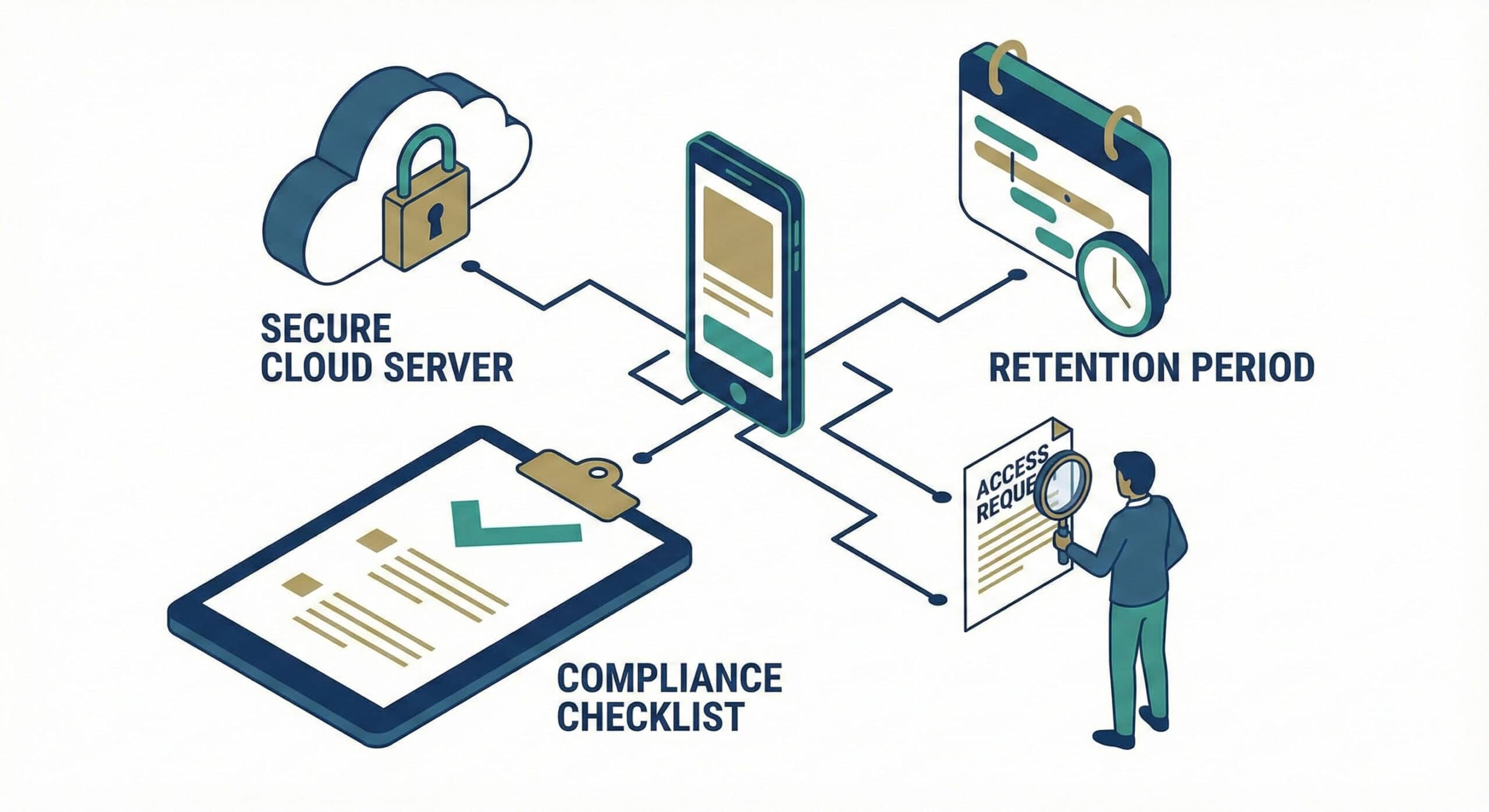
What Australian SMEs Need to Know About Recording, Retention and Access Requests
Call recording has become an essential part of how Australian small and medium-sized businesses manage customer interactions, resolve disputes, monitor quality and meet compliance expectations. Whether calls are handled in-house or through a live phone answering service, organisations are responsible for managing recorded information lawfully and securely. Many SMEs rely on recordings without fully understanding their obligations, which can create unnecessary legal and operational risk. This article breaks down the key requirements in clear, practical terms so business owners know exactly how to stay compliant.
Understanding Call Recording Under Australian Law
Australian call recording laws are shaped by a mix of federal and state legislation, and while the general principles are consistent, businesses must understand the underlying rules. Most states and territories require “all-party consent”, meaning both the caller and business must be made aware that a recording is taking place. Failing to notify a caller can breach state laws and the Commonwealth Privacy Act, even if the recording is never used.
The Privacy Act 1988 and the Australian Privacy Principles (APPs) form the national framework. Call recordings qualify as “personal information” when they contain identifiable details, which means businesses must manage them transparently. APP 5 requires businesses to notify people when collecting personal information, APP 6 governs how that information can be used, and APP 11 requires businesses to secure recordings against misuse or unauthorised access. These obligations apply regardless of whether the business handles the recording internally or through an outsourced provider.
Recording Policies SMEs Must Have in Place
Clear internal policies help SMEs avoid mistakes while ensuring staff understand their responsibilities. Employees must know why calls are recorded, how customers are notified and what information is stored. Training is critical because misunderstandings commonly occur at the frontline, particularly in small teams where processes are informal.
Notification to customers must always be clear, timely and unambiguous. This can be delivered through a spoken announcement, an IVR message or an on-screen disclaimer for web-based calls. If a caller does not consent, the business must provide an alternative, such as proceeding without recording or offering email support. Some industries also have additional obligations that may require longer retention or prohibit recording certain types of sensitive information.
Businesses should also identify situations where recording is restricted or needs additional safeguards. For example, capturing payment card details on a recorded line may violate security standards unless pause-and-resume or masking technology is used.
How Long Should Australian SMEs Retain Call Recordings
Australia does not mandate a universal retention period for call recordings, leaving SMEs responsible for selecting appropriate timeframes based on their needs. Many businesses adopt retention periods between three and twelve months, but this varies according to dispute cycles, customer expectations and industry requirements.
SMEs should consider the nature of their services, the typical duration of customer interactions and the likelihood of future disputes. High-value or complex service arrangements may justify longer retention, while shorter periods can reduce risks and costs.
Under APP 11.2, businesses must delete or de-identify recordings once they are no longer required for the purpose they were collected. This makes structured deletion schedules essential.
Storing and Securing Recorded Calls
Secure storage is a core compliance requirement. Recordings must be protected from unauthorised access, accidental disclosure and data breaches. This applies whether storage is on-premise, cloud-based or managed by an outsourced provider. Encryption, restricted access and audit logging are baseline expectations.
Common compliance gaps include storing recordings on unsecured network drives, emailing audio files without encryption or allowing staff broad access without justification. These practices increase the risk of privacy incidents and regulatory action.
Even when outsourcing recording and storage, SMEs remain responsible under the Privacy Act. Contracts should clearly define how data is secured, retained, accessed and deleted, with the provider demonstrating a high standard of security.
Meeting Access Requests Under Privacy Law
Customer access requests are becoming more common as awareness of privacy rights increases. Under the Privacy Act, individuals can request access to recordings, transcripts or other personal information held about them. SMEs must respond within a reasonable timeframe and must confirm the individual’s identity before releasing information.
To meet these obligations, businesses need a reliable system for locating recordings, reviewing content for third-party information and providing copies in an accessible format. If a recording cannot be provided, for example, because it contains information about another individual or has been lawfully deleted, the business must clearly explain the reason.
When SMEs Should Outsource Recording and Data Management
Outsourcing can significantly reduce compliance risks by ensuring that professional teams manage recording, storage and retrieval. SME teams often lack the infrastructure to support secure retention, access controls and detailed audit trails. Even well-organised internal systems may struggle to keep up with evolving legal obligations.
A specialised call handling provider can take responsibility for notifications, storage, retention schedules and deletion processes. This removes operational pressure and ensures consistent compliance. It also enhances service quality by providing well-trained agents, structured processes and secure handling of customer information.
- Better security controls and encryption
- Consistent retention and deletion processes
- Professional handling of access requests
- Reduced internal operational load
Practical Checklist for Australian SMEs
- Do customers receive clear notification of recording?
- Is there a defined and documented retention period?
- Are recordings encrypted and access-controlled?
- Do staff understand deletion and security processes?
- Can the business respond quickly to access requests?
- Does any outsourced provider meet required standards?
Conclusion
Call recording, retention and access management are essential responsibilities for Australian SMEs. Understanding the legal framework, setting clear internal processes and ensuring secure storage help prevent costly mistakes and strengthen customer trust. With rising expectations around privacy, businesses that adopt structured and transparent recording practices are better protected and better positioned to deliver reliable service. Outsourcing recording and storage can further reduce risk and improve operational efficiency, particularly for SMEs without dedicated internal resources.
FAQs
Q1: Do Australian businesses need to tell callers that calls are being recorded?
A1: Yes. Most states require all-party consent, meaning callers must be notified before or at the start of the call.
Q2: How long should call recordings be kept?
A2: There is no fixed requirement. SMEs should define a reasonable retention period and delete recordings once they are no longer needed.
Q3: Can customers request copies of their call recordings?
A3: Yes. Under the Privacy Act, individuals may request access to their personal information, including recordings.
Q4: Are all recordings considered personal information?
A4: If a recording identifies a person or contains information about them, it qualifies as personal information.
Q5: Is outsourcing recording and storage safer for SMEs?
A5: Often yes. Outsourcing provides stronger security controls and more structured retention processes.



